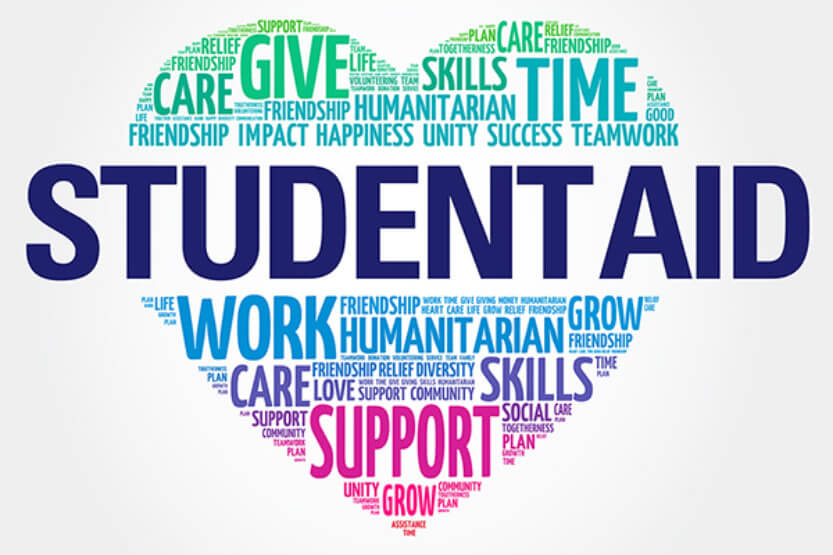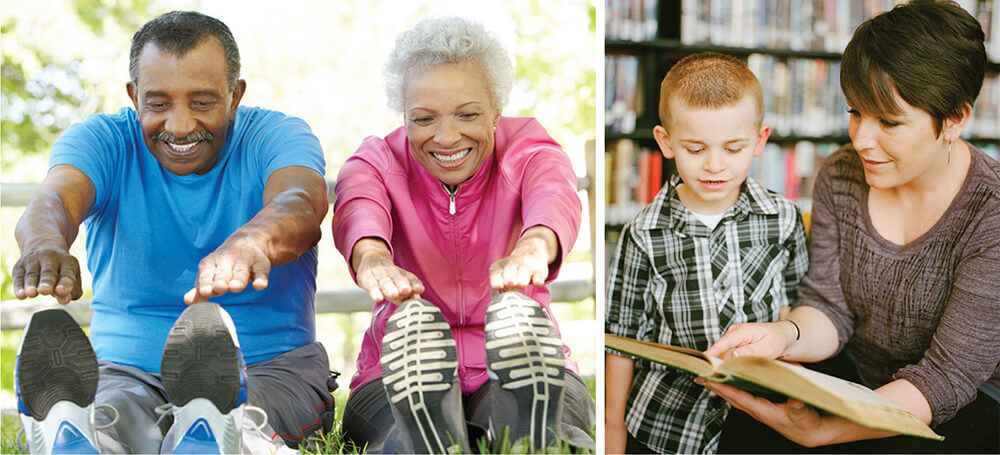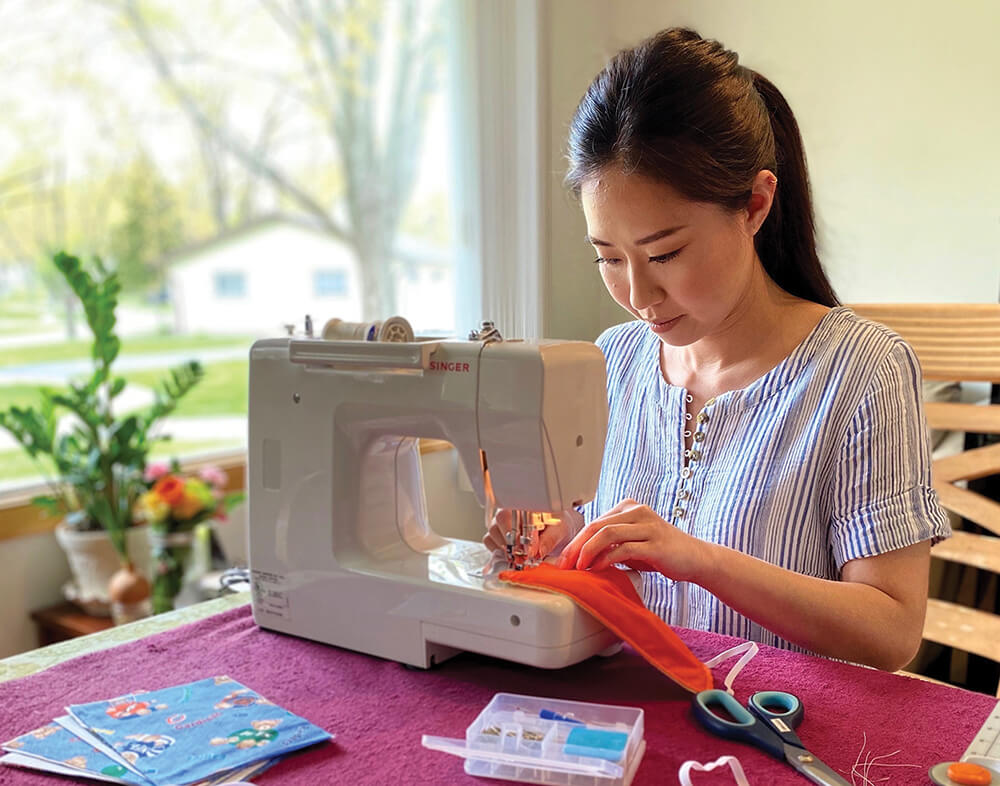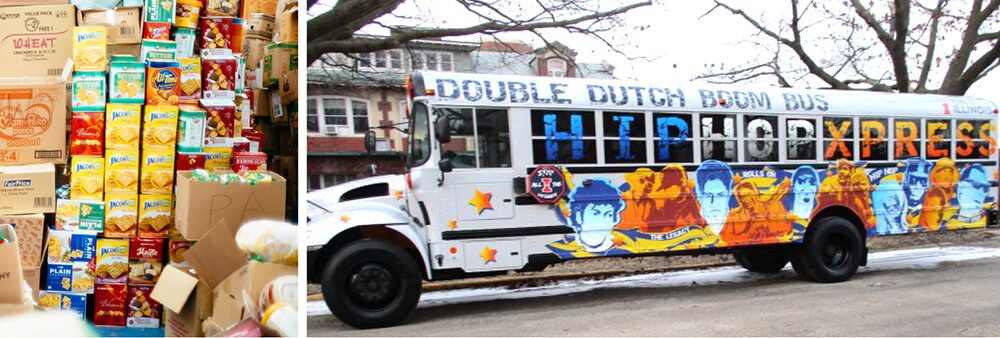Student aid

Dyslexia can have devastating consequences for young children learning how to read, yet many teachers are overwhelmed by other demands in their classrooms and can’t give such children the individual instruction they need.
Enter The Reading Group, which has provided tutoring to thousands of dyslexic children in the greater Champaign-Urbana area. Like many community nonprofits, it operates on a shoestring and has just two part-time employees. But its operations got a helping hand, thanks to We CU (Champaign Urbana) Community Engaged Scholars, a new program at Illinois that provides student-volunteer power to nonprofit organizations.
Three We CU volunteers upgraded the nonprofit’s social media sites, posted new content, designed a new logo and critiqued its marketing plans. “They were thoughtful and insightful,” says Jean Hinton, executive director of The Reading Group. “They processed information and came up with strategies.” Their efforts will help The Reading Group reach new clients and recruit new donors.

This past summer, 232 students from 12 U of I colleges participated in the We CU Community Engaged Scholars Program.Volunteers provided virtual services normally offered in person, such as organizing senior exercise classes and reading to children. (Fitness image by Cathy Yeulet/123RF; Reading image courtesy of UI Public Affairs)
And—both despite and because of the COVID-19 pandemic—they did it all remotely. So did 229 other We CU scholars, who volunteered over the summer with more than 30 nonprofits—mostly local entities, such as the Krannert Center for the Performing Arts, the Education Justice Project and city of Urbana’s Arts and Culture program. But they also included a health clinic in suburban Chicago and the Serve Illinois Commission on Volunteerism and Community Service, a state agency.
Designed to create a bridge between the University and the surrounding community, the program planned to launch in the fall 2020 semester as an onsite volunteer experience. But when the pandemic broke out in March 2020, We CU leaders asked themselves: What could be done now to address current needs? Their answer was to launch the We CU program immediately as an online model. This would bring much needed help to community nonprofits coping with the challenges of COVID-19.
“We sped up the timeline,” says Emily Stone, ’16 LAS, We CU co-director. “We were hearing from our community partners that they had a huge number of new needs to meet.” Driven by the shift to online, nonprofits had to upgrade websites, translate materials for non-English-speaking clients and create resource guides—huge challenges, especially for those short on staff.
“It was a crazy and stressful time in everyone’s lives,” Stone observes. “The students were also feeling isolated and wanted to have a sense of purpose. We realized this should launch now.” We CU paired 232 students from 12 colleges across campus with 34 community partners. Forty-nine projects were completed by the end of the summer, with student volunteers logging more than 4,500 service hours in just 10 weeks.
The range of support provided was wide. Education major Isabel Gleason created “a giant Excel sheet of artist data” for administrative use by Urbana’s Arts and Culture Program. She also read aloud to children—which was, she says, “a really sweet way to connect with the community”—under the auspices of Serve Illinois.

Volunteer Stefanie Kim led a group of nearly 40 students to produce 700 face masks for community distribution. (Image courtesy of UI Public Affairs)
Stefanie Kim, ’20 SSW, coordinated the efforts of nearly 40 other volunteers to make 700 face masks distributed by Krannert Center for the Performing Arts. Kim herself sewed 400 masks, stitching them on a portable Singer sewing machine borrowed from her mom. “At one point, I went 72 hours straight, minus sleeping time,’’ she says of her marathon production.
“Some people can’t afford a mask or don’t have access to the internet for instructions on how to make one. These are socioeconomic issues,” Kim says. “Everyone has a right to safety.”
Many of those who volunteered say they walked away more aware of systemic injustice. “Getting to hear from people who have been fighting for social and racial issues has been very insightful,” says Jonathan Cu. Cu went to work for the Education Justice Project, reviewing books and films relevant to the mission of the agency, which provides college courses to state prison inmates. An urban planning major, he also helped develop an online “storymap” to diagram the influence of Black people and Black culture on music. The latter project was for the Hip Hop Xpress Double Dutch Boom Bus, a studio on wheels designed to bring music lessons to local kids.
“We think of bigger social issues, like systemic injustice and racism, as being in cities like Chicago, St. Louis and New York,” Cu says. “But we’re fighting those problems right here in our own community.”
One of the few We CU students to work in the field rather than remotely, Ayme Aguilar volunteered at a walk-in clinic at MacNeal Hospital in her hometown of Berwyn, Ill., assisting with coronavirus testing. “I directly experienced the cultural, social and language barriers that are deeply rooted in health care,” says Aguilar, a double major in psychology and integrative biology who plans to attend medical school. “I have always known I want to become a physician. Seeing how these barriers affect a diverse group of people has really motivated me to help build a more inclusive community.”
Maaz Imam, a public health major, took on food insecurity, which haunts many people who lack the means to buy healthy food. Imam studied the stigma felt by college students who face food insecurity but are reluctant to acknowledge that they don’t get enough to eat. With his sights set on medical school as well, Imam also worked on developing an all-in-one vital-sign reader that measures pulse, respiratory rate, blood pressure and temperature for standard patient assessments. He recruited a team of We CU scholars, including doctoral candidates in biology and computer science students, who helped him design a prototype and plan clinical trials for the device.

We CU programs aid in the fight against food insecurity and bring music lessons to kids. (Images courtesy of UI Public Affairs)
“When the pandemic started, I felt pretty useless,” says Imam, admitting that the crisis even made him question the meaning and value of being a student. Working with We CU, he believes, brought him a much-needed sense of “active involvement in the betterment of the community.”
The University’s commitment to service as a way to foster life learning for students and bring lifeblood to the community is the force behind We CU. “A huge number of students are looking for opportunities to engage in the community, and a very large number of community organizations are looking for assistance from students,” Stone says. “But there has been no central place on campus for community organizations to go.”
With the support of the Chancellor’s office, the program emerged from discussions among leaders of the Siebel Center for Design, the College of Education, the School of Social Work, the Center for Social and Behavioral Science, and the Interdisciplinary Health Sciences Institute. We CU’s key partner and launch pad is in the School of Social Work’s Community Learning Lab, which for the past seven years has promoted service projects for its students through ties to more than 200 organizations in Champaign County. Expanding on this model, We CU is open to all students at Illinois.
Sign-up is designed to be convenient and user-friendly. Students select work that matches their skills and interests from community group projects posted on an interactive online platform. (Students may also propose their own projects.) Summer participation requires a 40-hour commitment. In the fall, the requirement is 20 hours. Academic credit is available through service learning courses, such as an LAS honors course that paired 30 community partners with 116 We CU scholars this past autumn. Overall, the number of volunteers almost doubled for the fall semester to more than 400 students.
The We CU program uses the GivePulse management platform to help students track their hours and assess their experiences. Training is provided, as is guidance through biweekly group reflection sessions. Recognition is important, so We CU gives its scholars a big shout-out for their achievements. The program celebrated its inaugural cohort in an end-of-summer ceremony on Zoom. Future ceremonies will be held in conjunction with Commencement and hosted at Alice Campbell Alumni Center, courtesy of the U of I Alumni Association. Stone hopes that We CU service may one day be acknowledged on student transcripts and eventually constitute a formal academic honor.
Undoubtedly, volunteering augments student resumes, but Stone believes it does more than that for them. “It also makes them more thoughtful citizens,” she says. And for many students, getting familiar with the nonprofit world is an education in itself. “A lot of our students are from the Chicago area. They may think of Champaign as a smaller community. But they become impressed by all the agencies and nonprofits serving the community,” she observes.
“Part of this experience is the students learning how incredibly important nonprofits are to the community,” adds Katie Shumway, who co-directs We CU with Stone. “These are places with big hearts. They are really dedicated to what they do.”
Additional reporting by Mary Timmins.

